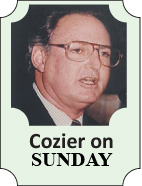 Amidst a cluster of depressingly paltry totals in the regional first-class tournament, moaning from predictable quarters about the pink ball and the never-ending sniping between Dinanath Ramnarine and his latest counterpart on the WICB, events half a world away brought a little more welcome cheer to West Indies cricket these past few weeks.
Amidst a cluster of depressingly paltry totals in the regional first-class tournament, moaning from predictable quarters about the pink ball and the never-ending sniping between Dinanath Ramnarine and his latest counterpart on the WICB, events half a world away brought a little more welcome cheer to West Indies cricket these past few weeks.
In less troubled times, third place in the Under-19 World Cup in New Zealand would have merited little attention. Now, set against a prolonged period of self-imposed mediocrity, it was evidence that the West Indies’ adolescents are as gifted as they have always been and certainly as those from opponents who keep thrashing their seniors.
Although restricted to the 50-overs-an-innings format, such tournaments provide an obvious showcase for the cricketers of the future.
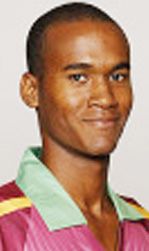
They are a test of temperament and technique on the biggest stage most would have played on and in alien conditions, such as the chill and seaming pitches in Christchurch.
Sooner or later, the best will move on to Tests, One-Day Internationals and, now, the lucrative Twenty20s.
More young West Indians than any other have made such an advance. Brian Lara, Jimmy Adams, Ridley Jacobs, Roland Holder, Nehemiah Perry, Rajindra Dhanraj and Robert Samuels were all in the first tournament, in Australia in 1988.
So were others who would confront them at a higher level in the coming years, such as Mike Atherton, Nasser Hussain, Mark Ramprakash, Inzamam-ul-Haq, Saeed Anwar, Chris Cairns and Sanath Jayasuriya.
Ten of the 15 West Indians now in Australia for the ODI and Twenty20 series that starts next Sunday first wore the maroon in the Under-19 World Cup – Chris Gayle, Dwayne Bravo, Narsingh Deonarine, Runako Morton, Kieron Pollard, Denesh Ramdin, Ravi Rampaul, Kemar Roach, Darren Sammy, Lendl Simmons and Gavin Tonge.
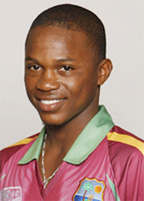
It is safe to assume that at least half of those from all the teams in Christchurch will feature regularly in international scoreboards over the next decade.
Already the Pakistan coach, Ijaz Ahmed, the attacking batsman who had 60 Tests and 250 ODIs between 1986 and 2000, has identified openers Kraigg Brathwaite and Trevon Griffith and big fast bowler Jason Holder as the most likely West Indians to move up.
With his four half-centuries and 335 runs in six innings, Brathwaite simply emphasised his record as an insatiable run-getter, a quality already recognised in Barbados with his 40 hundreds at all levels.
In the one West Indies televised match, the semi-final against Pakistan, the former Test players on commentary were immediately taken both by Brathwaite’s easy timing and Holder’s bounce from a consistently difficult length and line.
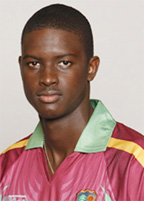
Joey Carew, the one-time Trinidad & Tobago captain, West Indies opener, selector and acknowledged guru, has pressed the WICB to add to its list of retainer contracts Holder, wicket-keeper/batsman Shane Dowrich and all-rounder Yannic Cariah, whose unbeaten 110 and steady leg-spin clinched the third place win over Sri Lanka on Friday.
Carew indirectly put his finger on the problem. It is that there is no genuine course of development for our young cricketers, not even with the 33 contracts recently awarded, several to players simply for making themselves available for the series against Bangladesh last year when most others followed the West Indies Players Association (WIPA) directive and didn’t.
It is impossible to know what they intend to achieve, except to allow those favoured to correctly fill in their job title on the immigration form as “professional cricketer”. There is, at present, nothing in place to back them up.
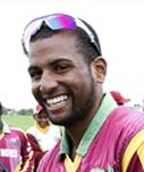
While all the other ICC full members have long since established national and other academies and arranged regular age-group and ‘A’ team tours to bring on their youngsters, the WICB and its affiliates are yet to get the promised regional academy and its allied feeders going.
We now hear the former will be active by April but it’s a recurring, unfulfilled theme.
Barbados’ Sir Everton Weekes Centre of Excellence was opened at Kensington Oval by the legend himself two years ago. It is yet to function. At least Trinidad & Tobago and Jamaica have recently got similar projects running, but with constraints.
The other major countries have two, sometimes three, ‘A’ team series a year. The West Indies haven’t managed one for more than two years.
The upshot is that Brathwaite, Holder, Dowrich, Cariah and the others return to the Caribbean this week to be left to their own devices.
Some may find places in their territorial teams where the standards and the general attitudes can do little for their progress. Others will go back to the club seasons.
In contrast, the champion Australians, English, Indians and the others can look forward to properly organised, well-funded programmes that concentrate on all aspects of their game, physical, technical and mental.
At teenage level, prior to full maturity, our players are on a par with the rest, as shown in New Zealand. It is long overdue for the WICB to ensure that they are provided with the means necessary to harness the available, and abundant, talent. There have been some bizarre Player of the Match awards since, like the white ball and night cricket, they became part of the game three or four decades back.
Basil Butcher gave the award to the entire New Zealand team for their winning performance in an ODI in Georgetown in 1996. Ted Dexter named John Abrahams solely for his captaincy of Lancashire in the 1984 Benson & Hedges Cup final. He made 0.
It once went not to a player but to Chickie, the DJ at the Antigua Recreation Ground, for livening things up.
The choice of Ryan Hinds in last week’s match against Trinidad & Tobago joins that category.
The Barbados captain scored 139 in the first innings, a fine performance on its own. But, with Trinidad & Tobago 115 behind and 43 for three and 98 for four in their second innings, Justin Guillen and Denesh Ramdin added 138 for the fifth wicket. When Guillen was out for 134, Ramdin proceeded to an unbeaten 166 as the last four wickets yielded 176.
Given 298 to win, Barbados were then thrown into panic by leg-spinner Imran Khan. He followed his first innings seven for 71 with four for 51 as the home team hung on grimly for a draw.
Ramdin and Imran were the obvious contenders yet Hinds was the name that was written on the paper.
No one seems able to identify the source but reports are that it was an American tourist from a nearby cruise liner who just happened to be strolling past Kensington at the time.





